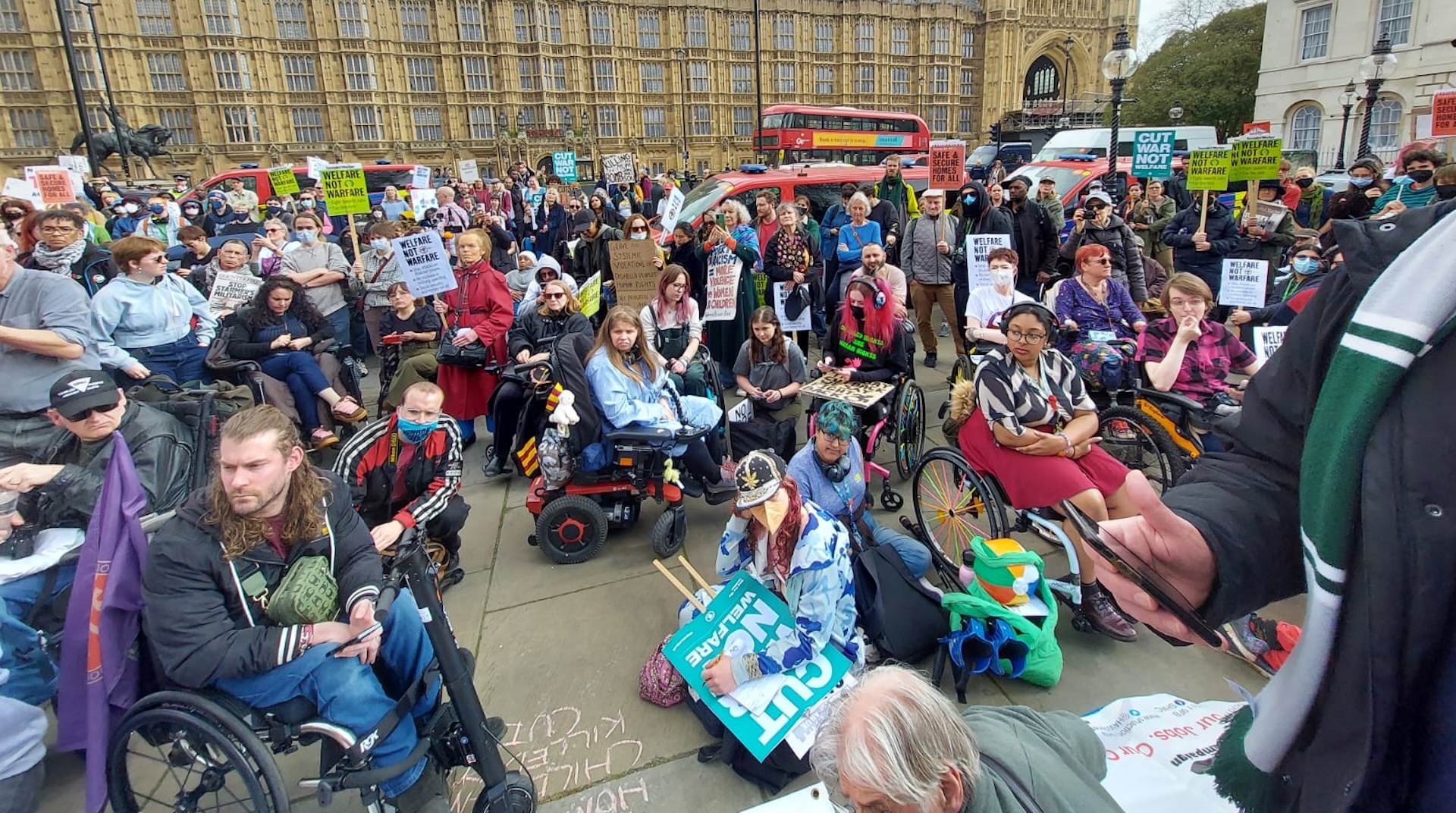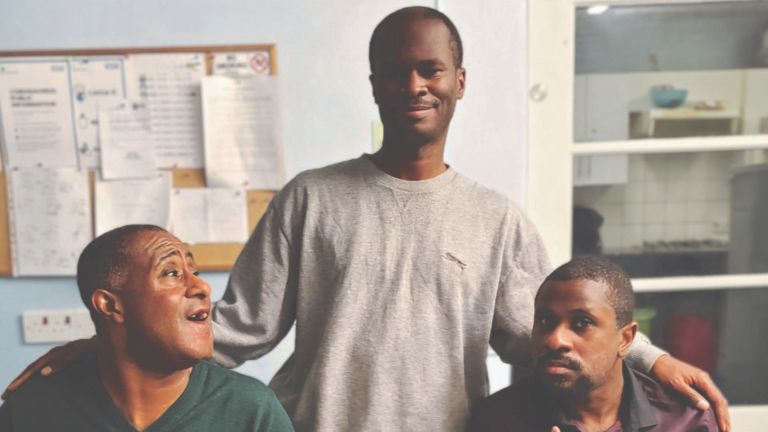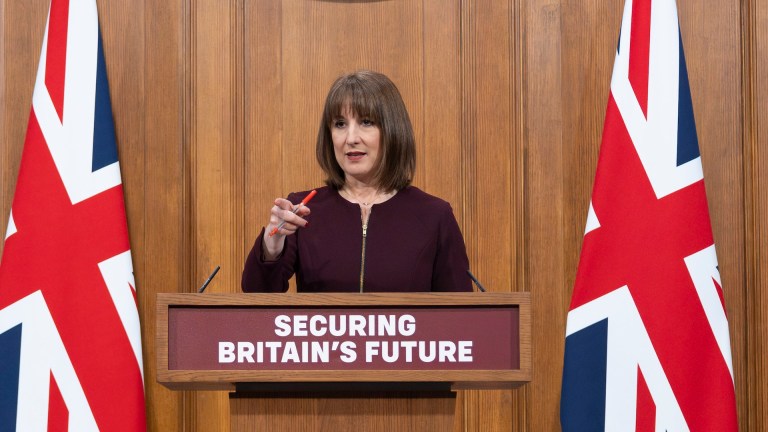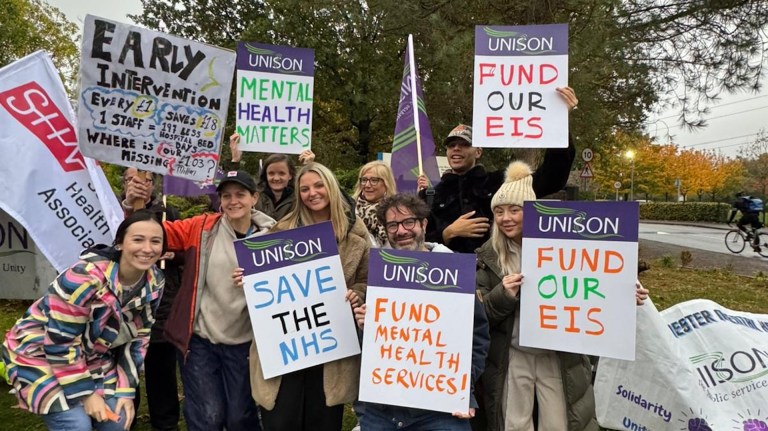In its response to the parliamentary question, which was tabled by Liberal Democrat MP Alison Bennett, the DWP said it did not know how many of the 95,000 care for someone who also scored below four points in each daily living category of their PIP assessment.
But given that around half of all PIP daily living claimants are exposed to the four-point rule, it is likely that tens of thousands of disabled households are at risk of this “triple hit” to their benefits – with the carer losing PIP and carer’s allowance, and the person they care for also losing PIP.
Read more:
“The shocking scale of the impact that the government’s welfare reforms will have on unpaid carers is becoming clearer by the day,” said Helen Walker, chief executive of Carers UK.
“Last week’s revelation that 95,000 carers who themselves have a disability are expected to lose their eligibility for PIP comes as another blow. This is a staggering two thirds of disabled unpaid carers who get both PIP and carer’s allowance.
“Some may not just lose their own PIP but may also lose carer’s allowance if the person they care for loses PIP. That could mean a double or even triple whammy for a family.
Advertising helps fund Big Issue’s mission to end poverty
“For disabled carers, PIP is a lifeline helping to meet the extra costs of disability. We’re deeply concerned about the impact of this on unpaid carers’ health and wellbeing which is already at risk as a result of caring. It could result in far greater costs for government if carers were no longer able to manage because of their disabilities and caring.
“These proposals could have a devastating impact on the household incomes of many thousands of families who are already really struggling, already fearful of what the proposed cuts could mean for them. Although carer’s allowance is the lowest benefit of its kind, it is vital income that many cannot afford to lose. 1.2 million carers are currently living in poverty with 400,000 in deep poverty.
“Unpaid carers save the economy £184 billion a year through the care they provide. The government must urgently reconsider its proposals.”
Some of the 95,000 may not be ultimately affected by the cuts. PIP claimants are no longer subject to regular reviews of their benefits once they reach pension age – although there is uncertainty over whether the infrequent “light touch” reviews carried out on pension age PIP claimants could also lead to a loss of benefits.
Alternatively, some claimants could go on to score four points in a daily living category when their PIP claim is next reviewed, for example if their condition worsens over time.
On the flip side, the government is also planning to abolish the work capability assessment (WCA). This wouldn’t take effect until near the end of the decade, but under these plans, “out of work” disability benefits such as the health element of universal credit would also be based on the PIP assessment with its four-point rule. Therefore some disabled people could ultimately lose PIP, carer’s allowance and the universal credit health payment over time.
Advertising helps fund Big Issue’s mission to end poverty
Ramzi Suleiman, policy and public affairs manager at Carers Trust, said: “Around 150,000 carers are on both PIP and carer’s allowance. This figure shows that nearly two-thirds of them might lose PIP – a vital source of income that supports them in their caring role. Carers are already being plunged into poverty, often having to give up work to look after friends and family at home. Without the financial safety net PIP provides, they may no longer be able to provide the care they do.
“Carers are plugging the gaps in our social care system. If they are forced to stop, even more pressure will be placed on that creaking system. The government needs to think again and start supporting carers instead of punishing them with these brutal benefit cuts.”
Parliament is expected to vote on the PIP cuts later this month, while the abolition of the WCA won’t be voted on until later this year at the very earliest. The mobility element of PIP won’t be affected by the government’s proposals.
A government spokesperson said: “The majority of people who are currently getting PIP will continue to receive it.
“Our reforms will help sick or disabled people move out of poverty and into good, stable jobs while ensuring support will always be there for those who will never be able to work.
“We are consulting on how best to support those impacted by the new eligibility changes – including carers – and have announced a review of PIP assessments, working with disabled people and key organisations representing them to consider how best to do this.”
Advertising helps fund Big Issue’s mission to end poverty
Promises are easy to break. Sign Big Issue’s petition for a Poverty Zero law and help us make tackling poverty a legal requirement, not just a policy priority.
Do you have a story to tell or opinions to share about this? Get in touch and tell us more. Big Issue exists to give homeless and marginalised people the opportunity to earn an income. To support our work buy a copy of the magazine or get the app from the App Store or Google Play.










